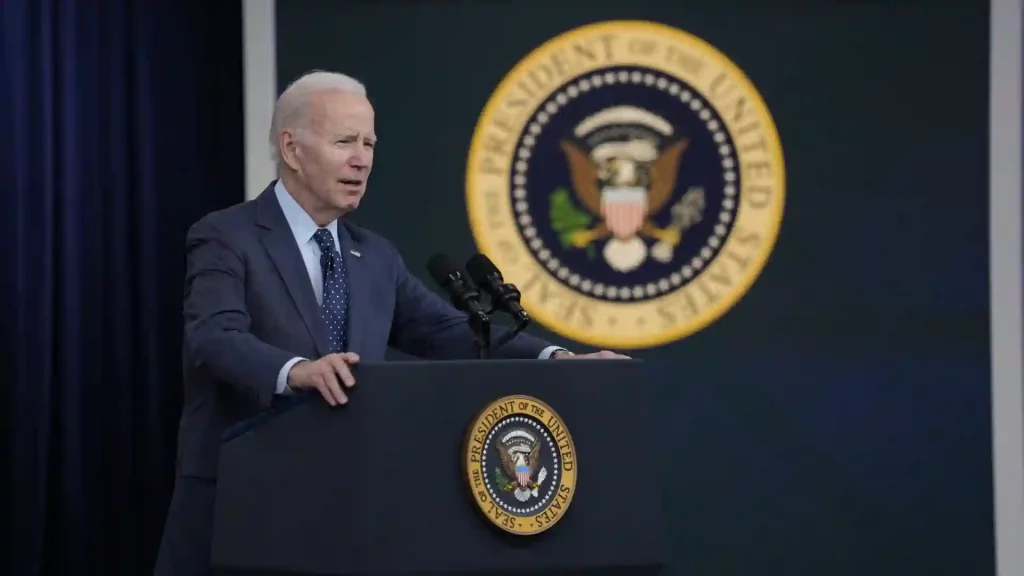US President Joe Biden has announced ‘Bidenomics’ as the centerpiece of his re-election campaign. Speaking from Chicago on Wednesday, Mr. Biden framed Bidenomics as a revolutionary transformation in American economic policy, directly opposed to the past forty years of Reaganomics. At a time when the American economy grapples with red-hot inflation, bank collapses, an ascendant China, and fears of recession, Mr. Biden has made a risky bet on his economics as his core poll strategy.
In his speech, President Biden claimed that the previous era of trickle-down Reaganomics had hollowed out the American middle class, destroyed hundreds of industrial towns, exported millions of jobs to Asia, and created risky dependencies in supply chains for strategic goods. He further went on to claim that his policies would be key to restoring the middle class, countering China, and re-industrializing America.
Initially coined by the media opposed to Biden, his regime has co-opted the term as an economic ideology unifying his legislation and policies in his first term. Remarkably similar to Donald Trump’s ‘America First policies, it remains to be seen whether a despondent American workforce will see it as enough to re-elect the octogenarian Democrat over his Republican counterpart.
What is Bidenomics in the first place?
‘Bidenomics’ is the name given to the economic policies of the Joe Biden regime, similar to how Reaganomics refers to the trickle-down, neoliberal policies of Ronald Reagan and Obamacare to the healthcare plans of Barack Obama. It aims to rebuild the American economy from the middle out and bottom-up – in stark contrast to the previous era of trickle-down economics – which Joe Biden stated has failed America and the middle class.
According to press releases from the White House, the Bidenomics strategy rests on the three major planks – ramping up public investment in America for things like semiconductors and clean energy, empowering and educating workers through college debt amnesty and unionization, and promoting market competition through better regulations such as discouraging non-compete clauses. If successful, Bidenomics represents a revolutionary transformation of the neoliberal status quo of the last four decades.
Till now, the Bidenomics package is mainly made up of four major laws passed by the Democrats before the Republicans took control of the House of Representatives. These laws include the CHIPS Act, which aims to secure supply chains and promote high-tech manufacturing in America, the trillion dollar Infrastructure Bill, the trillion dollar Covid stimulus American Rescue Plan, and the flagship Inflation Reduction Act, which aims to curb inflation by lowering medicine prices, lowering the federal budget deficit, and invest in domestic clean energy, among a host of other measures.
Have Joe Biden’s economic policies worked up till now?
Joe Biden also claimed that the economic policies of his regime had outperformed all other countries, which sounds dubious at best considering that two-thirds of Americans disapprove of his handling of the economy and feel it is in shambles.
A closer look at the data shows that although the American economy has seen stronger growth and employment generation than other developed economies, this growth is still well below those recorded in countries like India and China. Furthermore, the government has dropped the ball on inflation, with massive overspending by Biden contributing to inflation well above that in other developed nations, at least initially.
Thus, it seems that Bidenomics’ impact on the economy so far has been relatively mediocre – while it may be performing decently in comparison to developed nations of Europe and Japan, it underperforms Asian giants like China and India in growth. With Joe Biden betting his political career on Bidenomics, it remains to be seen whether American businesses and voters will respond well to this.
